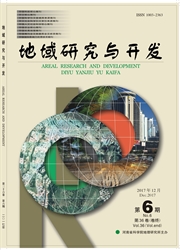

 中文摘要:
中文摘要:
在耕地多功能利用、农户耕地需求偏好多样性理论基础上,基于地决尺度构建农户土地利用决策过程与土地利用单元之间感知一响应反馈环路。采用野外采样与实验分析、农户调查和计量经济学相结合的方法,利用辽宁省沈阳市苏家屯区238户农户与对应地块采样数据展开实证研究。结果表明:农户会随着工业化、城市化进程的加快不断调整土地经营目标,导致农户在土地利用方式、利用程度、投入强度上产生差异,对土壤中有机质、碱解氮、速效磷、速效钾含量和pH值产生不同程度的影响。政府应通过提高农业比较效益、适度发展土地规模经营和推广测土配方施肥等环境友好型施肥技术,科学引导农户合理利用耕地资源,实现耕地资源可持续生产能力的提高。
 英文摘要:
英文摘要:
The research had constructed the theory framework of the feedback loop of the perception and response between the process of the land use behavior and the land use unit by the multi functional using of the cultivated land and the diversity preference of the household. On the basis of the combination in field sampling and laboratory analysis, statistical analysis and econometric models analysis, as a case study of survey of 238 households and the corresponding plot sampling point data. The results showed that the household adjusted the goal of the land use management, and led to the difference of the land use patterns, land use degree and land input intensity with the speeding up of industrialization and urbanization. They had the different influence degrees of the quality of cultivated land. Based on the above research conclusions, the government should improve the quality of cultivated land through guide the household reasonable use of cultivated land, and implemented land resource sustainable use.
 同期刊论文项目
同期刊论文项目
 同项目期刊论文
同项目期刊论文
 期刊信息
期刊信息
